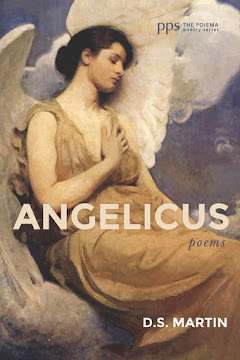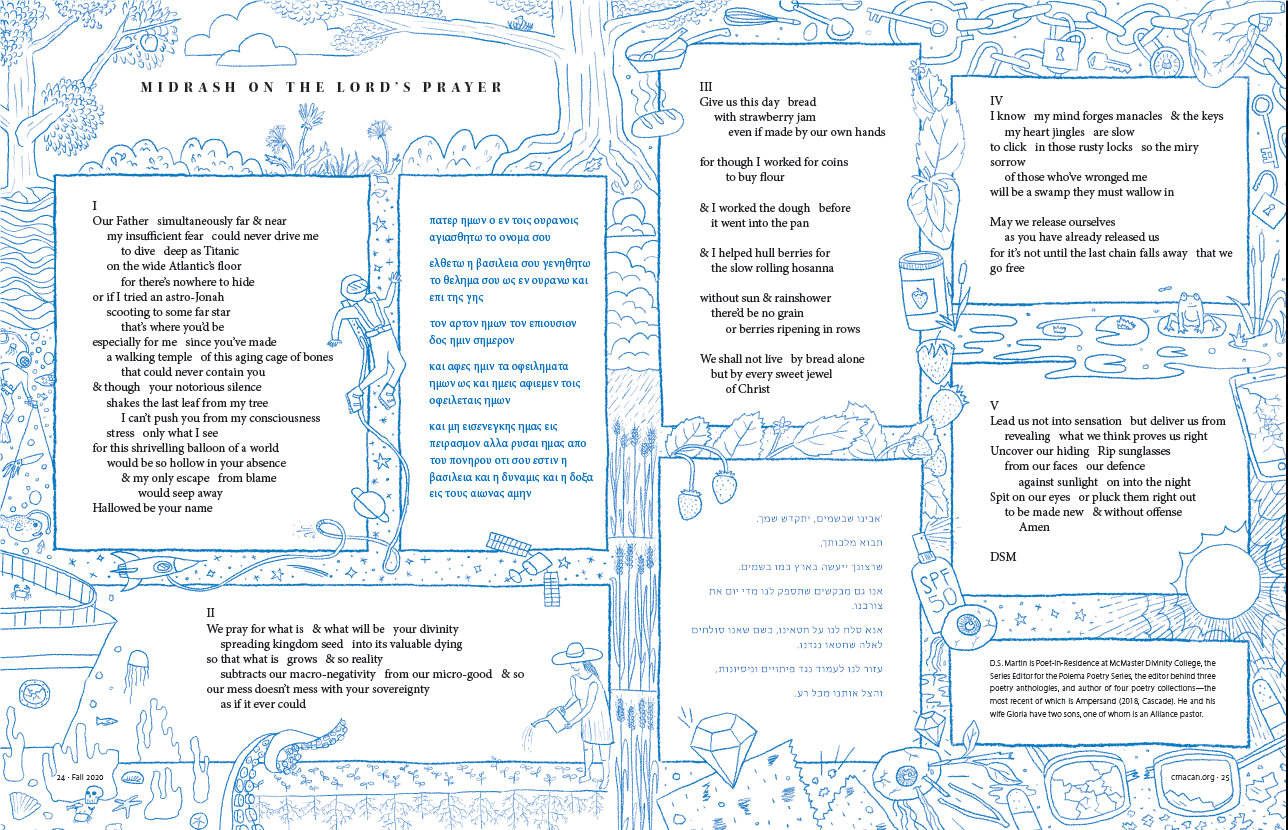Gustavo Adolfo Bécquer (1836—1870) is a significant Spanish poet, playwright, and short story writer. Although he found success, it wasn't until after his death that much of his work was published. He is considered the main writer of the post-romanticism movement, which dominated Spanish poetry in the latter part of the 19th century.
His father, who died when he was five-years-old, was a well-respected painter in Seville. His brother Valeriano also became a painter.
In 1857, Bécquer began an ambitious project about Spanish Christian art, combining religious ideals, architecture, and history — the first volume of which was published as Historia de los Templos de España. In that same year he was infected with tuberculosis, which worsened in 1870, leading to his death.
In Spanish-speaking countries he is often required reading at high schools; his influence is evident in many 20th century writers.
To All The Saints
Patriarchs, you who were the seed
of the tree of faith in distant centuries,
to the divine conqueror of death
pray for us.
Prophets, you who, inspired, tore away
the mysterious veil of the future,
to him who drew light from the darkness
pray for us.
Guiltless souls, Innocent Saints,
you who increased the choir of the angels,
to him who called the children to his side
pray for us.
Apostles, you who cast into the world
of the Church its powerful cement,
to him who is the depository of truth
pray for us.
Martyrs, you who won your palms
in the sand of the arena, in red blood,
to him who gave you strength in your struggles
pray for us.
Virgins like lilies,
you whom summer dressed in snow and gold,
to him who is the source of light and beauty
pray for us.
Monks, you who sought from life's struggle
peace in the silent cloister,
to him who is the rainbow of calm in storms
pray for us.
Doctors whose pens bequeathed us
the rich treasure of virtue and wisdom
to him who is the plenitude of inexhaustible knowledge
pray for us.
Soldiers of Christ's army,
all Saints male and female,
pray to him to forgive our faults,
Him who lives and reigns among you.
This post was suggested by my friend Burl Horniachek.
Entry written by D.S. Martin. His latest poetry collection, Conspiracy of Light: Poems Inspired by the Legacy of C.S. Lewis, is available from Wipf & Stock as is his earlier award-winning collection, Poiema.
Monday, August 28, 2017
Monday, August 21, 2017
Julia A. Carney
Julia A. Carney (1823—1908) is a poet and educator who was born in Massachusetts. Much of her poetry was published under various pseudonyms, credited to others or appeared anonymously. She married the Reverend Thomas J. Carney in 1849; they had nine children, four of which died in infancy.
Carl Sandburg grew up directly across the street from the Carney family. He said in Always The Young Strangers, "Often we saw on that porch rocking in a chair a little old woman, her hair snow-white with the years. She had a past, a rather bright though not dazzling past, you might say. She could lay claim to fame, if she chose. Millions of children reading the McGuffey and other school readers had met her name and memorized lines she had written."
Her most famous poem which she wrote in 1845 appears below.
Little Things
Little drops of water,
-------Little grains of sand,
Make the mighty ocean
-------And the pleasant land.
Little deeds of kindness,
-------Little words of love,
Make our earth an Eden,
-------Like the heaven above.
Entry written by D.S. Martin. His latest poetry collection, Conspiracy of Light: Poems Inspired by the Legacy of C.S. Lewis, is available from Wipf & Stock as is his earlier award-winning collection, Poiema.
Carl Sandburg grew up directly across the street from the Carney family. He said in Always The Young Strangers, "Often we saw on that porch rocking in a chair a little old woman, her hair snow-white with the years. She had a past, a rather bright though not dazzling past, you might say. She could lay claim to fame, if she chose. Millions of children reading the McGuffey and other school readers had met her name and memorized lines she had written."
Her most famous poem which she wrote in 1845 appears below.
Little Things
Little drops of water,
-------Little grains of sand,
Make the mighty ocean
-------And the pleasant land.
Little deeds of kindness,
-------Little words of love,
Make our earth an Eden,
-------Like the heaven above.
Entry written by D.S. Martin. His latest poetry collection, Conspiracy of Light: Poems Inspired by the Legacy of C.S. Lewis, is available from Wipf & Stock as is his earlier award-winning collection, Poiema.
Monday, August 14, 2017
John Milbank
John Milbank is Director of the Centre of Theology and Philosophy at the University of Nottingham. Last summer he retired from his position as Nottingham's Research Professor of Religion, Ethics, and Politics. He has also taught at the universities of Virginia, Cambridge and Lancaster. As a student he studied under Rowan Williams.
Of his three poetry collections, The Dances of Albion (2015, Shrearsman Books) is most recent. As a poet he is more focused on British mythology and fairy tales than theology.
He is, however, better known as a theologian — particularly for founding the "Radical Orthodoxy" movement — and is the author of several influential books including, Theology and Social Theory, and The Suspended Middle. He is sceptical of secular reason, and critical of liberalism.
Considering Lilies
Looking for rain,
celestial water
above all ponds,
the weed-lilies of convulvulus
in September foregather in the hedgerows
like white bells for a late marriage
of a still beautiful virgin,
their pure glamour disparaged,
as gypsy-women are the tares of queendom,
more savagely still in their darkness
and more blowingly resplendent
through its untamed virtue.
Returning on the train in hope
after many years
of a better consummation, he
recalled the school bell’s autumn sound
which once confirmed yet interrupted
his childhood rural pasturage.
It had reached attractively and insidiously
across all fields and past them,
suspending forever nature’s mute
untimetabled instruction.
So we probe the stars with signals,
travel anywhere in lines and pay
in numbers if we get them right
for anything available.
While nature lost still stays our course,
like a vast golden shadow of background,
ever forgotten, ever present
to accuse us of a wholly inadequate answer
to her perennial welcome.
Why do the skies alter, the seas surge and yet
the earth stays firm on which we are planted
in order to till, walk ever onwards,
look upwards that we might re-consider always?
Shifting the soils like a horde of phantoms
has got us nowhere.
Gridding the earth with waves and networks
has communicated to us nothing.
The road bends: he longs to linger
by the gate’s opening perchance
to greet her. Lone winds leave
the fascinating clouds from which
the dark birds also swarm. The willowherb
grows in this season more freely than the grasses.
Posted with permission of the poet.
Entry written by D.S. Martin. His latest poetry collection, Conspiracy of Light: Poems Inspired by the Legacy of C.S. Lewis, is available from Wipf & Stock as is his earlier award-winning collection, Poiema.
Of his three poetry collections, The Dances of Albion (2015, Shrearsman Books) is most recent. As a poet he is more focused on British mythology and fairy tales than theology.
He is, however, better known as a theologian — particularly for founding the "Radical Orthodoxy" movement — and is the author of several influential books including, Theology and Social Theory, and The Suspended Middle. He is sceptical of secular reason, and critical of liberalism.
Considering Lilies
Looking for rain,
celestial water
above all ponds,
the weed-lilies of convulvulus
in September foregather in the hedgerows
like white bells for a late marriage
of a still beautiful virgin,
their pure glamour disparaged,
as gypsy-women are the tares of queendom,
more savagely still in their darkness
and more blowingly resplendent
through its untamed virtue.
Returning on the train in hope
after many years
of a better consummation, he
recalled the school bell’s autumn sound
which once confirmed yet interrupted
his childhood rural pasturage.
It had reached attractively and insidiously
across all fields and past them,
suspending forever nature’s mute
untimetabled instruction.
So we probe the stars with signals,
travel anywhere in lines and pay
in numbers if we get them right
for anything available.
While nature lost still stays our course,
like a vast golden shadow of background,
ever forgotten, ever present
to accuse us of a wholly inadequate answer
to her perennial welcome.
Why do the skies alter, the seas surge and yet
the earth stays firm on which we are planted
in order to till, walk ever onwards,
look upwards that we might re-consider always?
Shifting the soils like a horde of phantoms
has got us nowhere.
Gridding the earth with waves and networks
has communicated to us nothing.
The road bends: he longs to linger
by the gate’s opening perchance
to greet her. Lone winds leave
the fascinating clouds from which
the dark birds also swarm. The willowherb
grows in this season more freely than the grasses.
Posted with permission of the poet.
Entry written by D.S. Martin. His latest poetry collection, Conspiracy of Light: Poems Inspired by the Legacy of C.S. Lewis, is available from Wipf & Stock as is his earlier award-winning collection, Poiema.
Monday, August 7, 2017
Thomas Aquinas
Thomas Aquinas (1225—1274) is an Italian philosopher, theologian and priest. His theological masterpiece Summa Theologica, written between 1265 and 1273, was intended to be the sum of all known learning as understood through the philosophy of Aristotle.
In 1256 he began teaching theology at the University of Paris, and then in 1265 he was summoned to Rome to serve as the papal theologian.
In his day, he was the leading proponent of natural theology. He took a poetic approach to his thought, seeking the meaning of the whole visible universe, writing down what he observed, and considering its relationships. In the area of poetry he is best known for his five Eucharistic Hymns.
Thee We Adore, O Hidden Savior
Thee we adore, O hidden Savior, Thee,
Who in Thy sacrament dost deign to be;
Both flesh and spirit at Thy presence fail,
Yet here Thy presence we devoutly hail.
O blessed memorial of our dying Lord,
Who living Bread to men doth here afford!
O may our souls forever feed on Thee,
And Thou, O Christ, forever precious be.
Fountain of gladness, Jesu, Lord and God,
Cleanse us, unclean, with Thy most cleansing blood;
Increase our faith and love, that we may know
The hope and peace which from Thy presence flow.
O Christ, Whom now beneath a veil we see,
May what we thirst for soon our portion be,
To gaze on Thee unveiled, and see Thy face,
The vision of Thy glory and Thy grace.
Entry written by D.S. Martin. His latest poetry collection, Conspiracy of Light: Poems Inspired by the Legacy of C.S. Lewis, is available from Wipf & Stock as is his earlier award-winning collection, Poiema.
In 1256 he began teaching theology at the University of Paris, and then in 1265 he was summoned to Rome to serve as the papal theologian.
In his day, he was the leading proponent of natural theology. He took a poetic approach to his thought, seeking the meaning of the whole visible universe, writing down what he observed, and considering its relationships. In the area of poetry he is best known for his five Eucharistic Hymns.
Thee We Adore, O Hidden Savior
Thee we adore, O hidden Savior, Thee,
Who in Thy sacrament dost deign to be;
Both flesh and spirit at Thy presence fail,
Yet here Thy presence we devoutly hail.
O blessed memorial of our dying Lord,
Who living Bread to men doth here afford!
O may our souls forever feed on Thee,
And Thou, O Christ, forever precious be.
Fountain of gladness, Jesu, Lord and God,
Cleanse us, unclean, with Thy most cleansing blood;
Increase our faith and love, that we may know
The hope and peace which from Thy presence flow.
O Christ, Whom now beneath a veil we see,
May what we thirst for soon our portion be,
To gaze on Thee unveiled, and see Thy face,
The vision of Thy glory and Thy grace.
Entry written by D.S. Martin. His latest poetry collection, Conspiracy of Light: Poems Inspired by the Legacy of C.S. Lewis, is available from Wipf & Stock as is his earlier award-winning collection, Poiema.
Subscribe to:
Posts (Atom)






















